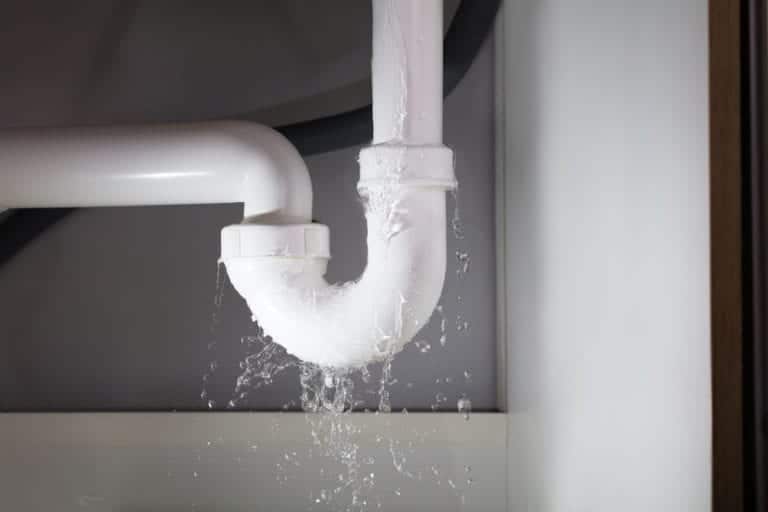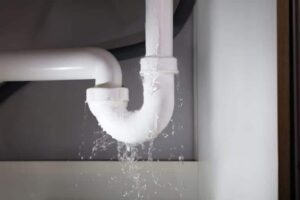▷Fixing a Leaking Kitchen Sink: 5 Effective Solutions In San Diego

Fixing a Leaking Kitchen Sink: 5 Effective Solutions In San Diego

Is your kitchen sink giving you trouble? Discover five expert tips to repair your kitchen sink efficiently. From fixing leaks to unclogging drains, these simple yet effective strategies will have your sink working like new in no time. Save time and money by learning how to troubleshoot common sink issues on your own. Follow our guide for practical solutions that anyone can implement with ease. Get ready to tackle those pesky kitchen sink problems head-on!
Identifying Common Sink Problems
- Leakage Issues
Leakage is a prevalent problem with kitchen sinks, often caused by damaged pipes or loose fittings. Check for water pooling around the sink area as it indicates a possible leakage.
- Clogging Concerns
Clogging in sinks can result from food debris, grease, or foreign objects obstructing the drain. Use a plunger or drain snake to clear the blockage effectively.
- Low Water Pressure
Low water pressure in your kitchen sink may stem from mineral build-up in the faucet aerator. Clean the aerator regularly to ensure optimal water flow.
- Rust Formation
Rust on a sink’s surface is unsightly and can lead to further damage if not addressed promptly. Apply a rust remover following manufacturer instructions to eliminate rust stains.
- Foul Odors
Unpleasant odors emanating from the kitchen sink are often due to trapped food particles or bacterial growth. Regularly clean the drain using baking soda and vinegar to combat foul smells.
Repair Steps for Leaky Faucets
- Fixing Leaks
Leaky faucets are a common issue in kitchen sinks. To repair this, start by turning off the water supply under the sink. Next, dismantle the faucet handle to access the cartridge or O-ring causing the leak.
- Replacing Cartridge or O-Ring
Inspect the cartridge or O-ring for damage. If it’s worn out or damaged, replace it with a new one. Ensure to lubricate the new part before reassembling the faucet handle.
- Checking Water Supply Lines
etimes leaks can originate from faulty water supply lines. Inspect these lines for any cracks or loose connections. Tighten connections and replace damaged lines if necessary.
- Testing Repairs
After completing the repairs, turn on the water supply and test the faucet for any leaks. Observe closely for any drips or irregularities. Make sure all components are properly tightened.
- Maintenance Tips
Regularly check your kitchen sink for leaks and address them promptly to prevent further damage. Consider installing a water leak detector to alert you of any potential issues early on.
Fixing Spray Hose Leaks
Check Connections
Inspect the connections between the spray hose and faucet. Tighten any loose connections to prevent leaks.
- Replace O-Rings
If tightening the connections doesn’t work, try replacing the O-rings. These small rubber rings can degrade over time, causing leaks.
When reassembling, ensure the O-rings are properly seated to create a watertight seal.
- Examine Hose Damage
Carefully examine the hose for any visible damage or cracks. If found, consider replacing the hose to eliminate leaks.
- Utilize Thread Seal Tape
Apply thread seal tape to the connections before reattaching them. This tape helps create a secure seal and prevents leaks.
Remember to wrap the tape in a clockwise direction around the threads for effective sealing.
Addressing Strainer and Drain Issues
- Strainer Maintenance
To prevent clogs, regularly clean the strainer by removing debris and buildup. Ensure it fits securely to avoid leaks.
- Clearing Clogs
When faced with a clogged drain, try using a plunger to dislodge the blockage. Avoid using chemical drain cleaners as they can damage pipes.
- Checking for Leaks
Inspect the area around the strainer for any signs of leaks. Tighten connections if needed to stop leaks.
- Replacing Gaskets
If you notice water leaking from the strainer, it may be time to replace the gasket. Choose a gasket that matches your sink model.
- Professional Assistance
For persistent issues or complex repairs, consider seeking help from a professional plumber. They have the expertise to handle challenging situations effectively.
When to Call Experts
- Professional Assessment
If you’ve tried the basic fixes and your kitchen sink still isn’t draining properly, consider calling in a professional plumber for a thorough assessment.
- Complex Plumbing Issues
Expert plumbers are equipped to handle more complex plumbing issues that may be beyond the scope of DIY repairs.
- Specialized Tools
Professionals have access to specialized tools and equipment that can effectively diagnose and repair challenging sink problems.
- Prevent Further Damage
Calling in experts can help prevent further damage to your kitchen sink and plumbing system, saving you from costly repairs in the long run.
- Safety Concerns
When dealing with intricate plumbing systems, it’s crucial to prioritize safety. Experts possess the knowledge and experience to navigate potential hazards effectively.
Prevention Tips
- Regular Maintenance
Regularly check for leaks, cracks, or clogs in your kitchen sink to prevent major issues down the line. Look out for any signs of corrosion or wear and tear.
- Proper Disposal Techniques
Avoid disposing of grease, coffee grounds, or large food scraps down the drain as they can lead to blockages. Use a strainer to catch debris.
- Mindful Usage
Be mindful of what goes down the drain. Avoid pouring chemicals or harsh cleaners that can damage the pipes. Opt for environmentally friendly alternatives.
- Temperature Control
Avoid extreme temperatures when using your sink. Hot water can cause pipes to expand, while cold water can cause them to contract, leading to potential damage.
- Timely Repairs
Address any minor issues promptly before they escalate into major problems. Fixing small leaks or drips early on can save you from costly repairs later.
FAQs
How Can I Identify Common Sink Problems?
To identify common sink problems, look for signs such as leaks under the sink, slow drainage, strange noises, or foul odors. Check for water stains, rust, or mold around the sink area. Observing these indicators can help pinpoint the issue quickly.
How Do I Repair A Leaky Faucet In My Kitchen Sink?
To repair a leaky faucet in your kitchen sink, start by turning off the water supply. Disassemble the faucet to locate the faulty parts like O-rings or washers. Replace these components with new ones and reassemble the faucet. Turn on the water supply to check for leaks.
What Steps Should I Follow To Fix Spray Hose Leaks In My Kitchen Sink?
To fix spray hose leaks in your kitchen sink, first, turn off the water supply. Inspect the hose for any visible damage or cracks. If you find any issues, replace the spray hose with a new one following the manufacturer’s instructions. Test the repaired hose for leaks before regular use.
How Can I Address Strainer And Drain Issues In My Kitchen Sink?
To address strainer and drain issues in your kitchen sink, remove any debris or buildup from the strainer using a brush or cleaning solution. For clogged drains, try using a plunger or a drain snake to clear blockages. Regular maintenance can prevent future strainer and drain problems.
When Should I Call Experts For Kitchen Sink Repairs?
If you encounter complex issues like major leaks, persistent clogs, or significant structural damage to your kitchen sink, it is advisable to call experts for repairs. Professional plumbers have the expertise and tools to handle intricate problems effectively and ensure long-lasting solutions.
Now that you’re equipped with valuable insights on identifying and fixing common kitchen sink issues, you can confidently tackle any problems that come your way. Remember to address leaky faucets promptly to prevent water wastage and potential damage. Don’t overlook spray hose leaks or strainer and drain problems, as these could escalate if left unattended. Knowing when to call in the experts is crucial for complex issues beyond your DIY skills.
To speak with Home Kitchen Bath Remodeling, dial (619) 489-9819.
Conclusion
You can rely on Home Kitchen Bath Remodeling to complete your extension project on schedule and within budget. Call (619) 489-9819 to schedule your no-cost initial consultation.
Contact Home Kitchen Bath Remodeling today for al your remodeling needs.
BELOW ARE SOME OF THE MANY HOME INTERIOR SERVICES THAT WE OFFER
-
Kitchen BacksplashKitchen Backsplash
-
Kitchen CabinetsKitchen Cabinets
-
Kitchen CountertopsKitchen Countertops
-
Kitchen FaucetsKitchen Faucets
-
Kitchen LightingKitchen Lighting
-
Kitchen SinksKitchen Sinks
-
Kitchen TileKitchen Tile
-
Bathroom AdditionBathroom Addition
-
Bathroom CabinetsBathroom Cabinets
-
Bathroom FaucetsBathroom Faucets
-
Bathroom SinksBathroom Sinks
-
Bathroom TileBathroom Tile
-
Bathroom VanitiesBathroom Vanities
-
Shower DoorsShower Doors
-
Shower SystemsShower Systems
-
Basement RemodelingBasement Remodeling
-
Crown Moulding / BaseboardsCrown Moulding / Baseboards
-
Dining Room RemodelingDining Room Remodeling
-
Home Office RemodelingHome Office Remodeling
-
Living Room RemodelingLiving Room Remodeling
-
ADUADU
-
Disability / Mobility ADUDisability / Mobility ADU
-
Finished BasementFinished Basement
-
First StoryFirst Story
-
Garage ConversionGarage Conversion
-
Granny FlatGranny Flat
-
Second StorySecond Story
-
Engineered StoneEngineered Stone
-
Engineered WoodEngineered Wood
-
Green FlooringGreen Flooring
-
Hardwood FlooringHardwood Flooring
-
Laminate FlooringLaminate Flooring
-
Natural Stone FlooringNatural Stone Flooring
-
Tile FlooringTile Flooring
-
Kitchen TileKitchen Tile
-
Bathroom TileBathroom Tile
-
Pool TilePool Tile
-
Exterior TileExterior Tile
Related Posts

▷Tips to Install a Wood Countertop in Your Kitchen In San Diego
Tips to Install a Wood Countertop in Your Kitchen In San Diego Looking to upgrade your…

▷Essential Tools and Materials for Installing a Bathroom Vanity In San Diego
Essential Tools and Materials for Installing a Bathroom Vanity In San Diego Want to transform your…

▷Avoiding Mistakes: Installing a Bathroom Vanity and Sink In San Diego
Avoiding Mistakes: Installing a Bathroom Vanity and Sink In San Diego Did you know that updating…

▷5 Benefits of Upgrading Your Kitchen Backsplash In San Diego
5 Benefits of Upgrading Your Kitchen Backsplash In San Diego Did you know that upgrading your…

▷6 Benefits of Remodeling Your Dining Room In San Diego
6 Benefits of Remodeling Your Dining Room In San Diego Enhance your dining experience with a…

▷Ways to Install a Shower Module: Step-by-Step Guide In San Diego
Ways to Install a Shower Module: Step-by-Step Guide In San DiegoLooking to upgrade your bathroom…

▷Ways to Install Kitchen Tiles in 5 Easy Steps In San Diego
Ways to Install Kitchen Tiles in 5 Easy Steps In San Diego Did you know that…

▷5 Reasons Why Custom Bathroom Cabinets Are Worth It In San Diego
5 Reasons Why Custom Bathroom Cabinets Are Worth It In San Diego Looking to elevate your…

Leave a Reply